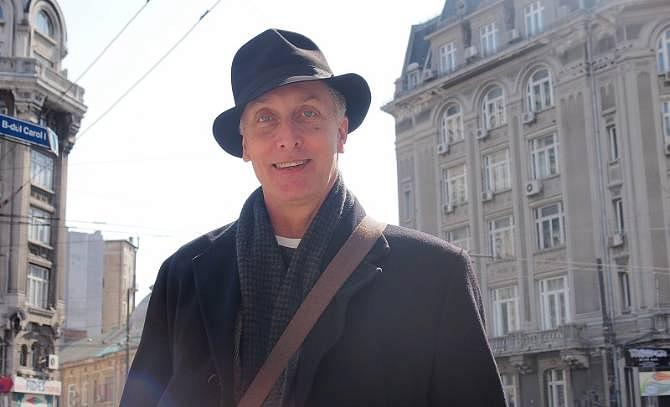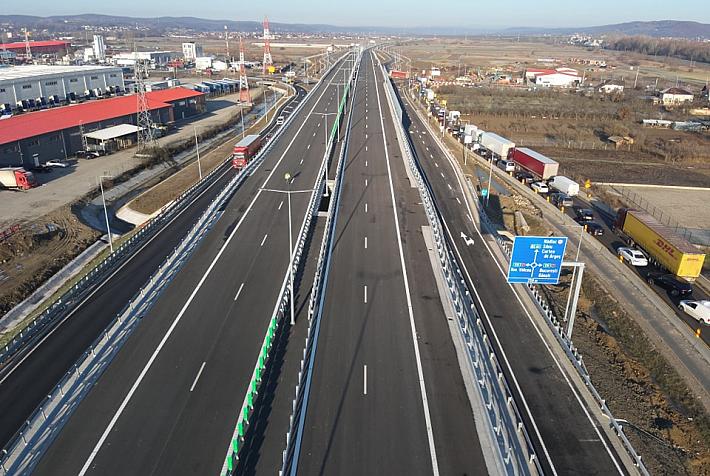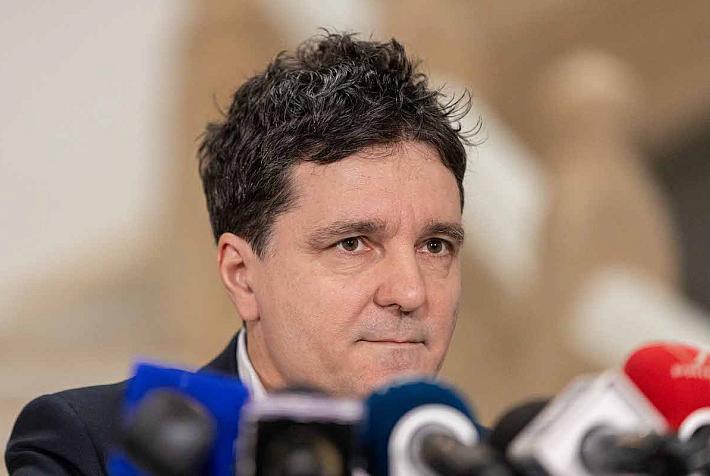Peter Frank on sloppy joes, apple pies and critical thinking on life

An American moves to the other side of the Atlantic and sails across Romania’s peculiarities, a country with no canned soups, but with 20 varieties of sour cream.
The waitress, a young woman wearing sneakers, notices the new customers and approaches them. Without looking at the menu, Peter Frank orders hot coffee with hot milk. Typically the milk is served cold in most places in Bucharest, but that’s nonsense for Peter, an American who is used to drinking his coffee hot and who is always meticulous about food and drinks. Take the episode with the bagels. It was 2009, he had just moved to Romania from New York, and the only thing he was missing was the food. So he started experimenting. It took him about 20 attempts to make bagels so they tasted perfect. Well, almost perfect, he adds.
When the coffee finally arrives, Peter notices that the milk is warm, but not hot. He’s not fault-finding, but he knows from his own experience that waiters sometimes take the effort to do a little extra thing and sometimes they don’t. When he was young, he had been working in various restaurants on and off, through high school, through college, after college, for 13 years. He was a short-order cook, the guy flipping the eggs. He would show up at 5 am, one hour before the restaurant opened. Everybody on their way to work would drop in for a bagel or some eggs or potatoes or bacon and coffee and get breakfast. At 16, he worked in a pizzeria with Toni, a guy from Italy. Then when he was in college, he was a restaurant manager in Georgetown, Washington DC. One of the customers was a lawyer always wearing a hat. Peter would look at him curiously, thinking, wow, I guess you can still wear a hat.
30 years later, drinking his not-so-hot coffee, Peter is also wearing a hat; and red sneakers. But he’s on the other side of the Atlantic, in Bucharest. After working as a business journalist for a dozen years and then in banking for many years, Peter moved to Romania.
Last month, he launched his book called “How to be a lot less stupid. A journey in critical thinking for business.” Peter says that if he were to strip all the business terms out, it is a critical thinking-about-your-life book. Critically thinking is finding the assumptions that you base your decisions on, but that you’re not aware of; it’s basically starting a dialogue with yourself, about your business, or just about your life.
Fixing your business is no different than sitting in a bar with your friend who is terribly unhappy with their relationship, Peter says. “What questions do you ask him or her? ‘What’s wrong with your partner? Is it them or is it you? What else is it up there? What would you prefer? What do you want out of your life?’ Exactly the questions that business consultants ask in a different way their business clients. They are questions that we know to ask our friends, but we don’t know to ask ourselves.”
***
After studying business and philosophy, Peter began his career in journalism in Dallas, Texas. He followed his father’s path, who had been a reporter for the Associated Press. Peter worked as a reporter for the New York Times, which opened a press bureau in Dallas. He later joined The Sun in Baltimore, first as a reporter and then as a financial editor. “Being a reporter was like driving a taxi. You had your own ideas, your own streets. Becoming an editor was the biggest change. You were sitting behind the desk, 20 business reporters reporting to you, you were a manager.”
Working in journalism stopped being a challenge, Peter says, so after 15 years of writing about business, covering banking, he grabbed the chance to go inside a bank and really see how things work. In 1996, he joined MBNA Corporation, the world's largest independent credit card issuer, heading the communication department. Ten years later, he moved to Mexico, as sales director, and then to England, to help reestablish the bank’s Business Card product. However, in 2006 Bank of America bought MBNA, and the company turned from a huge family-like business into a huge corporate bank. In 2007, Peter, together with other colleagues, left the job. He then moved to Romania, where he had a TV show on Money Channel, taught MBA classes and worked as a business consultant.
In 2013, Peter took a year off to write his book about critical thinking. Now, he’s in the process of writing his second book. This one is about cooking.
Cooking, just like journalism, is something he picked from his dad. “My father cooked at home from his mother, who was an immigrant from Poland. He grew up in the kitchen with his mother during the Depression, he was the youngest kid. So I grew up seeing him cooking.”
Peter also gained experience from working as a cook in various restaurants, during his high school and college years. He then cooked at home with his kids. When they were growing up, going to college, Peter would start writing down recipes so that they knew how to make meat loafs or apple pies.
Over time, Peter realised he had about 60 recipes. But he hadn’t written down how the barbeque sauce is made or the salad recipes and smaller things. He ended up with 100 recipes and decided to contact a publisher. He added little explanations to the recipes: like why it’s almost impossible to find bacon here like you have in the US, or why the US pumpkin pie is totally different from Romania’s placinta de dovleac.
Tomato soup, for example, is one thing in Romania, and something very different in the US. “Tomato soup in the US is from a can.” Peter’s recipe is pretty darn close to what Americans grew up with.
“I remember going to the grocery stores and saying to my wife, there’s no canned soup at all? I’m serious. There’s no soup out of a can? That’s impossible!” Peter says that it’s almost like being Romanian and living in the US and trying to find slanina. It simply doesn’t exist.
It was something you grew up with and ate it three times a week and you don’t necessarily eat it as an adult. But when there’s nothing else and you’re tired, you just want some canned soup or noodle chicken soup. “Our canned soup varieties are way too much salty, they taste as they’re processed, but we’re just so used to them. And the idea that you can’t get it suddenly makes it more valuable. I’ve been here three years and maybe have not eaten jello in the last 15 years, but the fact that I couldn’t find it, I had my brother bring a box.”
Writing the book was not a way of dealing with nostalgia, Peter says. “Cooking is like that. I get in the kitchen and make bagels and then I feel like home. But writing the cookbook was like teaching a course; about how you put together cinnamon bonds, what they are, the different varieties.”
He wants to teach a cooking class here in Bucharest, for those who are interested in what American cooking is, or for expats. “I heard Americans in the supermarket saying, excuse me, which one is the sour cream? You got 23 varieties of smantana. And our sour cream is different. And there’d be other questions.” He has structured the class to go with his book on critical thinking. It would be more of an evening with some basic cooking and discussions on critical thinking.
Just like learning to make bread, a person can learn to think critically about their own life, to ask the important questions. There’s no big mystery to that. In both cases, you just need to learn the steps and that’s it. “You dumped some water in the flour a thousand years ago and it became bread.”
That’s why so many people are unhappy, says Peter, because they don’t understand why they are unhappy. They don’t know what questions to ask. They don’t know how to start. They ask themselves 'why am I unhappy', but that’s such a complicated question, and it only makes them more unhappy. You need to go step by step,” he explains.
After finishing his coffee, Peter gets out into the city. The blinding sun sneaks under his hat and drops shadows on his face. With his long coat, the hat and the red sneakers, it’s easy to spot that he’s a foreigner. Peter suddenly remembers about a Chinese restaurant in Bucharest that he recently discovered. It was maybe the first restaurant meal that he has had here that let him feel he was eating in New York.
By Diana Mesesan, features writer , diana@romania-insider.com
(photo by Diana Mesesan)












